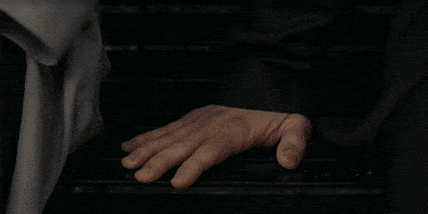Relationships are blummin' tricky.
Whether it's a late-night drunken argument, a quarrel over dirty plates left near the dishwasher (as if they're going to grow legs and jump in there themselves one day) or the seething anger that comes over you when your other half gets pass-out drunk in front of your mates, it doesn't take much to get the ball rolling on a break-up.
After all, you're:
- Just not right for each other.
- The timing isn't quite right.
- You miss your independence.
- You're bored.
- You just don't fancy them anymore.
- You don't have enough in common.
Sound familiar?
However, instead of pigeon-holing your break-ups into the above excuses, what if there was a more primitive reason behind why we struggle to maintain healthy relationships?
Why relationships are hard?
Stan Tatkin, a psychobiologist for couples therapy, gave a TEDxKC talk last year explaining exactly how we can screw ourselves over when it comes to dating. Basically, it all comes down to how our brain works.
In his speech, Tatkin says: 'There's actually nothing more difficult on the planet than another person.'
'We all come to each new relationship wanting easy, but we also come with our fair share of unresolved painful experiences from previous relationships,' he adds.
If you've been cheated on before or felt insecure with an ex, you'll often imprint old behaviours and emotions onto new relationships. Don't worry, this is natural. But, why?
Memory and experience
According to Tatkin, when we interact with a partner, our brain taps into what is known as 'automatic neurological reflexes' or 'procedural memory'.
In layman's terms, your actions end up going onto autopilot, in the same way your brain knows how to ride a bike or play the piano despite the fact you might not have hit the pedals or keys in years.
This means that when the 'honeymoon' phase of a relationship slowly fizzles out – which it inevitably does – the brain starts to automate a partner because it thinks it knows them, inside and out.
As a result, you stop paying attention and being fully present in the relationship. Meanwhile, your memories take on a more active role, processing your boyfriend/girlfriend's thoughts and feelings through the perspective of old memories, affected by previous experiences and relationships.
'Your perceptions are like fun house mirrors, constantly being altered by your state of mind and your memory,' says Tatkin.
So, how can we stop ourselves from falling victim to procedural memory taking over our feelings and actions towards our partners?
How to find happiness in love
It all starts with finding the right person. Of course, this is easier said than done and often involves several hours on dating apps, failed blind dates and flings with an ex.
Averil Leimon, leadership psychologist at White Water Group and one of the first UK-based psychologists qualified in positive psychology, reveals the most important aspect of a relationship is to find someone who holds the same values. Regardless of looks, money, generosity or intelligence, a similar core belief system in basic human decency is the perfect foundation for a relationship.
'We feel authentic when we stay true to our core values. If we have to modify them to fit in with someone else it can gradually numb or shame you over time. Losing touch with [your core beliefs] can cause meaninglessness, so it's better to be united in sharing them,' she says.
While having the same views on politics or agreeing on the best film from the Godfather trilogy might not be deal-breakers, the basis of a healthy and happy relationship starts with a common view on the core aspects of life such as kindness, equality and women's rights.
'A commitment to values such as kindness is almost a rock solid guarantee of a successful and life enhancing relationship,' says Leimon.
Putting it into practice
Once you find someone you're willing to spend your life with (or at least two hours in front of the television on a Saturday night), maintaining a happy relationship requires more than shared values – it requires effort.
In the same way you make time for the gym, socialising with friends or catching up on a Netflix series, you need to dedicate time to nurture your relationship.
Sarah Fletcher, psychosexual and relationship therapist at Couple Works jokes: 'If you expect the plants to grow you need to give it water.'
Here are her top tips on improving our emotional well-being in a relationship:
1. Use 'I' statements
Unsurprisingly, good communication is key to a happier relationship.
In you want change in your relationship, you need to reconsider how you tackle irritations or problems head on. Instead of immediately placing the blame on your partner when you're unhappy, first explain how their actions make you feel in order to bring their attention to the issue.
She suggests: ' Acknowledge how you feel by using the phrase 'I feel' rather than being confrontational with phrases such as 'You always do this' or 'Why can't you do that?'. As a result, this forms a constructive dialogue around an issue, rather than a slinging match of insults to hurt one another when you're in defense mode.
'If you always respond the same way to annoying habits, you have to expect the same result. You have the power to change your own responses,' she adds.
2. MOT your relationship
Fletcher says: 'People have an assumption that relationships will be like they are at beginning, but one of the disappointments of long-term relationships is they're hard work. We're often not prepared for that.'
Having fun is one of the key ways to improve your relationship, be it with a joint activity or a dedicated date night one or twice a month. Dedicating time to spend together is an investment in the health of your relationship and shows commitment in keeping engaged with each other's feelings, worries and hobbies.
'And no, that doesn't mean vegging out in front of the television,' warns Fletcher.
3. Have a screen-free zone
How many times have you had an argument while either you or your partner is on their phone or staring into a computer screen?
Tatkin explains as humans, we're visual animals who need our eyes in order to regulate our nervous systems. Therefore, when our partner glances up occasionally from a technological device, our body interprets this as a 'threat trigger', sparking frustration or anger.
In the same way a mother helps to form a bond with baby during breast feeding – when there is dedicated eye contact, mother to child – Fletcher says we need to dedicate time looking at each other. Sounds simple enough.
'We need eye contact to be able to notice whether our partner looks anxious or worried so we can act on their emotions and behaviours,' she advises.
Whether it's 'no phones in the bedroom after 8pm' or a television-free hour after dinner, form better habits in interacting with each other, rather than with the outside world. After all, you're not in a relationship with social media.
4. Evaluate your other relationships
Have you ever found yourself in an argument with your partner as a result of the way they reacted to you talking about your day, your friends or how you feel?
Fletcher says: 'The way you form relationships early on in life become imprinted on new relationships. We automatically expect our partners to behave in particular ways, so we need to understand why we think the way we do, and vice versa.'
To do this, consider how your emotions were dealt with as a child, who you spoke to when you were sad and how your family discussed day-to-day subjects and ambitions. By reflecting on why you expect certain behaviours from your partner, you'll be better equipped at vocalising what you want from a relationship and why.
5. Make time for sex
No really. You need to carve out time in your busy schedule to get down and dirty. Well, not necessarily dirty, but you know what we mean.
The likes of Fifty Shades of Grey and the writings of Jilly Cooper has bred a generation of women – and men – who expect sex to be spontaneous, exciting and novel each time. Sadly, sex on the kitchen floor and in the shower isn't a day-to-day reality (for most people, anyway).
Fletcher explains: 'The desire for sex is basically wired by different parts of the brain. When you're in a long-term relationship, familiarity is counter intuitive to this excitement so you have to look at sex as a different emotional connection.'
Sex can still be fun in a long-term relationship and no, this doesn't mean you have to lower your expectations for your sex life.
However, the moment you stop being disappointed by the fact it isn't what it used to be like 'in the beginning' and focus on how to build on your knowledge of each other's wants and needs – an asset in the bedroom that's lacking in the early days, remember – the much happier you'll be.
6. Don't threaten to break up if you don't mean it
It might sound obvious but we often forget to actively be kind to our partners, in the same way we would to strangers or colleagues.
Of course, no relationship exists nor can function without fighting and conflict but, Tatkin says, it's not arguments that damage a relationship, but constant doubt over its strength.
'A relationship can survive fights but what it cannot survive is loss of safety and security,' he says.
When we run out of things to say in an argument, we often turn to threats of leaving the relationship as we know it's the weapon in our arsenal that is the most hurtful to our partner.
However, threatening to end a relationship when you don't actually mean it is one of the most damaging things we can do to each other, as it perpetuates a sense of unease and insecurity in times of trouble or doubt.
We need to work on building relationships that feel secure and safe so there's a foundation of trust and understanding. Everyone gets caught up in the heat of an argument, of course, but you should only threaten to end a relationship if you really mean it. Hard to put into practice, yes, but better for your relationship in the long run.
The reality is no relationship is easy. But, if you want to get through the bad to achieve the good, tackle the challenges head on, actively try to be kind and make time for each other. If the relationship is worth it, it's worth the work.

Katie O'Malley is the Site Director on ELLE UK. On a daily basis you’ll find Katie managing all digital workflow, editing site, video and newsletter content, liaising with commercial and sales teams on new partnerships and deals (eg Nike, Tiffany & Co., Cartier etc), implementing new digital strategies and compiling in-depth data traffic, SEO and ecomm reports. In addition to appearing on the radio and on TV, as well as interviewing everyone from Oprah Winfrey to Rishi Sunak PM, Katie enjoys writing about lifestyle, culture, wellness, fitness, fashion, and more.













